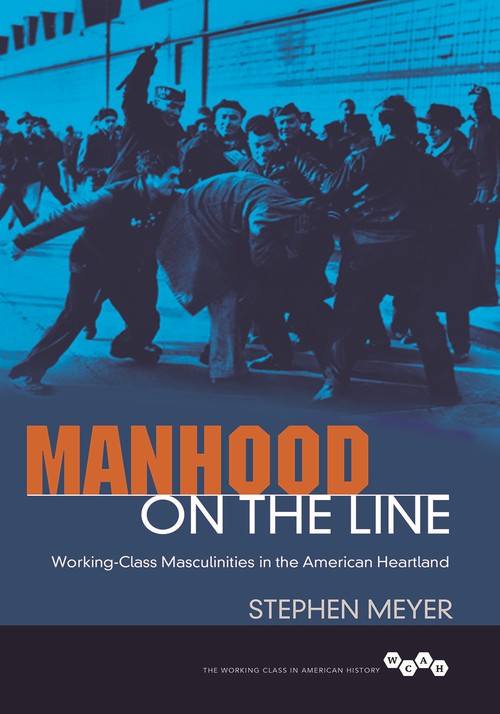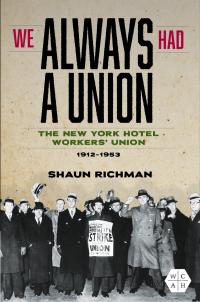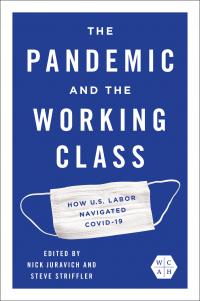
Manhood on the Line
About the Book
In the early twentieth century, industrialization upended long-entrenched notions of gender and work identity in working-class men. They responded by creating new identities that blended a rough masculinity of carousing and hard drinking with a respectable masculinity that aspired to join the nascent blue-collar middle class.Stephen Meyer charts the complex vagaries of men reinventing manhood in twentieth-century America. Their ideas of masculinity destroyed by principles of mass production, workers created a white-dominated culture that defended its turf against other racial groups and revived a crude, hypersexualized treatment of women that went far beyond the shop floor. At the same time, they recast unionization battles as manly struggles against a system killing their very selves. Drawing on a wealth of archival material, Meyer recreates a social milieu in stunning detail--the mean labor and stolen pleasures, the battles on the street and in the soul, and a masculinity that not only expressed itself in violence and sexism but also as a wellspring of the fortitude necessary to maintain one's dignity while doing hard work in a hard world.
About the Author
Stephen Meyer is an emeritus professor of history at the University of Wisconsin–Milwaukee. His books include The Five Dollar Day: Labor Management and Social Control in the Ford Motor Company, 1908–1921.Reviews
"A well-reasoned, thoroughly researched history that makes an important contribution to masculinity and gender studies, the sociology of work, labor history, and industrial relations. . . . Highly recommended."--Choice"An incredibly rich social history."--The Michigan Historical Review
"In the scholarly study of masculinity, the history of working class masculinity has often been neglected in favor of more accessible middle-class men's stories. Stephen Meyer's book is a valuable . . . contribution to the work being done to rectify this omission."--Kansas History
"Richly detailed. . . . The strength of Manhood on the Line is its unvarnished examination of the power of masculinity."--The Annals of Iowa
"A richly textured, highly readable study, which should have a significant impact on the writing of a more complicated history of the working class in all advanced capitalist societies."--Labour
"Meyer has produced an important work—a readable, revealing, well-researched, insightful piece of history."--Journal of the Illinois State Historical Society
Blurbs
"A landmark of twentieth-century U.S. history. The research is extraordinary; the argument compelling. It is about our century and nation, and the many blue-collar men who worked in lousy, tough jobs and figured out ways to make a living, and also remain a man."--Roger Horowitz, author of Putting Meat on the American Table: Taste, Technology, and Transformation
"This important and thoughtful book should remove any remaining doubts about the significance of creating a men's history that takes gender seriously."--Ava Baron, author of Work Engendered: Toward a New History of American Labor
"Represents a kind of coming of age for labor history after decades of exciting scholarship. Attentive to the power of gender and race in shaping working-class experience, it navigates the difficult terrain between the rough and respectable cultures of working-class men in the auto industry. It's also a terrific read. A master craftsman of working class history, Meyer compellingly shows us how automation, economic crisis, and the presence of women and African American workers reshaped the shop floor and working-class white men’s identity and politics. Finally, Manhood on the Line addresses the difficult questions of sexual harassment and racism in the industrial heartland and illuminates the social worlds of white and black working-class men and women in the twentieth century."--Elizabeth Faue, author of Community of Suffering and Struggle: Women, Men, and the Labor Movement in Minneapolis, 1915–1945
"In both argument and evidence, Manhood on the Line is among the richest studies of U.S. working class history. Meyer explores the intersections of gender and class with great clarity and subtlety."--David Roediger, author Seizing Freedom: Slave Emancipation and Liberty for All






